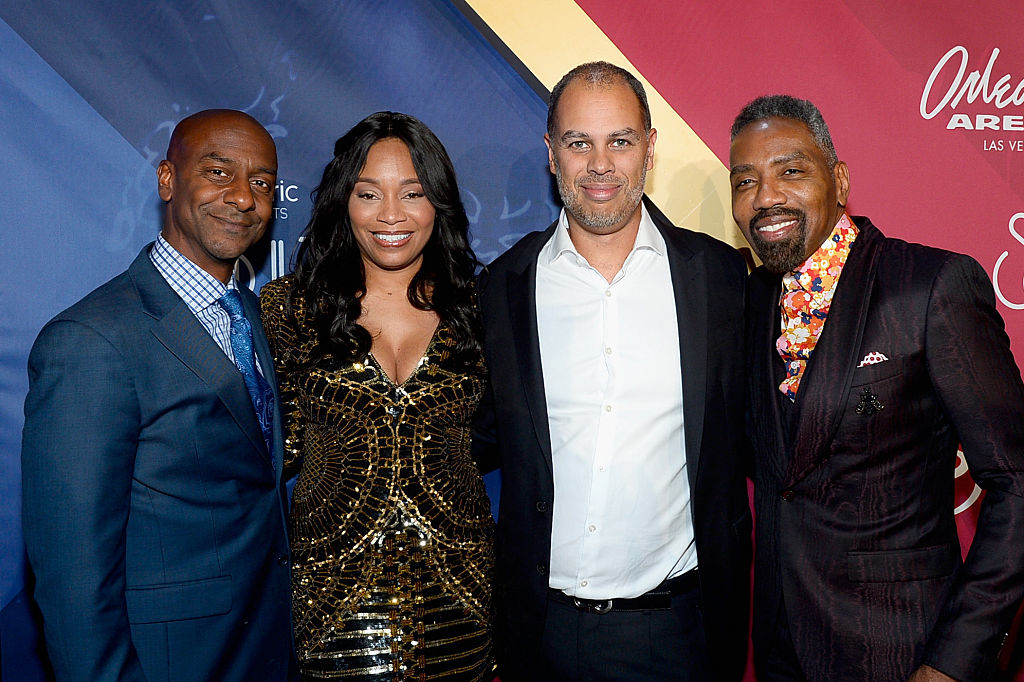 President Trump and Joe Biden during the first presidential debate on September 29, 2020. | AFP/Getty Images
President Trump and Joe Biden during the first presidential debate on September 29, 2020. | AFP/Getty Images
Joe Biden and Donald Trump offer up two visions of economic recovery.
When you think about what’s going on in the economy, you’ve also got to think about who. And right now, things are not going evenly for everyone.
During Tuesday’s first presidential debate between President Donald Trump and Joe Biden, moderator Chris Wallace posed a question to the two candidates about the economy: is the US in a V-shaped recovery or a K-shaped recovery?
For those who aren’t familiar with the alphabet soup of economic terms, it seems confusing. But it’s not as complicated as it seems.
Essentially, those who say America is undergoing a V-shaped recovery mean, well, what it looks like — the economy is going to bounce right back to where it was pre-pandemic, like the letter V.
But others say what the United States needs to watch out for is a K-shaped recovery — one where the rich recover much faster than everyone else. It looks like the letter K — two lines starting together and then diverging as they branch out. Trump and the Republicans are V-shaped believers, focusing on measures like the stock market to argue that the economy is bouncing back.
Biden and the Democrats argue that what’s happening is a K-shaped recovery: maybe the market is doing well and rich people have recovered, but for others, it’s going to be a long slog.
The contrast is about more than what letter the economy looks like — it’s also about the policies Trump has in place and the policies a Biden administration would seek out. The president has taken a free-market approach, cutting taxes and deregulating businesses in an attempt to generate growth at the top (which is not always successful) that, he argues, will eventually help everyone else.
Biden’s platform would attempt to create a recovery for more people, more quickly: Instead of a rising-tide-lifts-all-boats approach, he wants everyone to row in the same direction.
The basic idea of the K-shaped recovery, briefly explained
The general concept behind the K-shaped recovery is that if you were to draw a graph of how the economy is doing, the line representing rich people would go up and the line representing poor people would go down.
Vox’s Matt Yglesias recently outlined the idea. Basically, wealthier people and those with white-collar jobs are doing fairly well during this — their jobs are sticking around, they’re cutting some spending, and life is generally fine. And stockholders’ wealth is even going up.
But for less well-off Americans and people who have lost their jobs, it’s different — the stock market isn’t helping them, and for those who are unemployed, expanded unemployment benefits dried up at the end of July. With Congress not in a particular hurry to provide fiscal support, that means a drag on the economy.
The divide isn’t just rich versus poor — it’s also white versus Black and people of color. For example, the overall unemployment rate is 8.4 percent. But when you break it down by racial lines, the story on what’s happening is quite different: white unemployment is 7.3 percent, and Black unemployment is 13 percent. White workers are the only ones with an unemployment rate below 10 percent. Vox’s Aaron Ross Coleman recently outlined the distinction and its impact:
But now, as the top-line unemployment numbers have come down, Congress has failed to come to any consensus on aid for its most vulnerable citizens, particularly minorities. And this failure has left these Americans with no aid at all, abandoning them to suffer the effects of high unemployment in this unprecedented recession. And despite past warnings about the difficulty people of color have in recovering from recessions, lawmakers are repeating the mistakes.
Donald Trump wants to talk the stock market. Joe Biden would rather talk the broader economy.
When the coronavirus pandemic took hold in March, the government shut down the economy in an effort to try to get the virus under control. Businesses shuttered, millions of people lost their jobs, and activity ground to a halt. Activity is starting to recover, but the economy looks different depending on the measure you’re considering — if you look at the stock market (which is in large part being driven by the Federal Reserve), it looks pretty good.
If you look at small businesses that are permanently closing their doors or millions of people still on unemployment, not so much.
To talk about the contrast between Trump and Biden on the economy is to talk about the type of recovery the US wants to have. Whoever is president come January 2021 is going to have a lot of work to do to rebuild what has been lost during the pandemic. And reopening can only do so much — like it or not, plenty of people just are not falling over themselves to get on an airplane or go to a restaurant when a deadly virus is still spreading. The longer the government waits to act, the worse the economy gets, and the harder recovery becomes.
Trump signed a $1.5 trillion tax cut that disproportionately benefited corporations and the wealthy the year he took office, and while he’s promised more tax cuts, it’s not clear what they’ll be. The president has talked about middle-class tax cuts around elections in the past, only for them to dissipate once votes are cast.
Biden is running on a “build back better” economic agenda aimed not at re-creating the economy the US had back in February just as it was — one that was unequal in myriad ways — but at creating a new one that is fairer and better. It entails putting money and efforts into clean energy, caregiving, reshoring business, and addressing the racial wealth gap.
While there is often thought to be a tension between equality and growth, Biden’s plan seeks to thread the needle. By some estimates, it could do so successfully — Moody’s Analytics recently projected Biden’s plan would create 7 million more jobs than a Trump second term.
If you look at it closely, the economic recovery, even through the rosiest of glasses, is looking more like a check mark than a V. But regardless of the shape, it’s important to keep in mind when talking about what’s happening in the economy who it is and isn’t happening for.
Will you help keep Vox free for all?
The United States is in the middle of one of the most consequential presidential elections of our lifetimes. It’s essential that all Americans are able to access clear, concise information on what the outcome of the election could mean for their lives, and the lives of their families and communities. That is our mission at Vox. But our distinctive brand of explanatory journalism takes resources. Even when the economy and the news advertising market recovers, your support will be a critical part of sustaining our resource-intensive work. If you have already contributed, thank you. If you haven’t, please consider helping everyone understand this presidential election: Contribute today from as little as $3.
from Vox - All https://ift.tt/3ib5QKV


 President Trump and Joe Biden during the first presidential debate on September 29, 2020. | AFP/Getty Images
President Trump and Joe Biden during the first presidential debate on September 29, 2020. | AFP/Getty Images
 Kamala Harris participates in the Democratic presidential debate at Tyler Perry Studios November 20, 2019, in Atlanta, Georgia. | Alex Wong/Getty Images
Kamala Harris participates in the Democratic presidential debate at Tyler Perry Studios November 20, 2019, in Atlanta, Georgia. | Alex Wong/Getty Images

